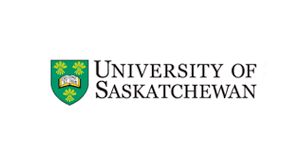University of Saskatchewan: Global Institute for Food Security at USask receives provincial funding to measure and promote sustainable agriculture practices
The funding, provided through the Ministry of Agriculture, has been entrusted to GIFS to define, accelerate, and communicate the agriculture sector’s contributions to improved environmental outcomes.
“This announcement demonstrates the province’s commitment to agriculture and the value the sector provides to Canada and the rest of the world,” said GIFS Chief Executive Officer Steven Webb. “It’s a recognition of the contributions of a resilient value chain and the many stakeholders who have continued to work tirelessly through challenging global conditions to feed the world through sustainable agriculture practices.”
The funding from the province government highlights agriculture’s contributions to mitigating the effects of climate change while driving economic recovery from the pandemic and addressing other global challenges.
Saskatchewan has already proven to be a leader in sustainable agricultural practices. Along with Western Canada, the province has led with the adoption of no till technology, resulting in economic, environmental, and social benefits to agriculture and farming practices.
“Saskatchewan’s producers have always been advocates of best practices in farming and food production—something that has established our province as a global leader in proven, sustainable approaches to agriculture,” said Agriculture Minister David Marit. “This funding will help to promote and enhance understanding of these approaches as a model for continued progress.”
A public-private partnership established by the Government of Saskatchewan, Nutrien and USask, GIFS is a founding partner of the National Index on Agri-Food Performance, an initiative to track sustainability success across Canada’s agriculture and agri-food industry. Working as a connector in the agriculture and food ecosystem, the institute will collaborate with sector stakeholders to demonstrate the economic, environmental, and social value that agriculture offers.
Using its unique scientific as well as data management and analytics capabilities, and connections throughout the sector, GIFS will analyze the science to define and demonstrate agriculture’s role with reliably sequestering and significantly reducing greenhouse gas emissions – helping to communicate this in effective ways.
“Agriculture is a solution to mitigating the effects of climate change, and Canadian agriculture in particular is one of the most sustainable in the world,” said Webb.
“We have an advantage we should be proud of, that we need to share globally, and the funding from the province will help yield results that will drive benefits for agriculture, Saskatchewan and Canada’s economy.”

